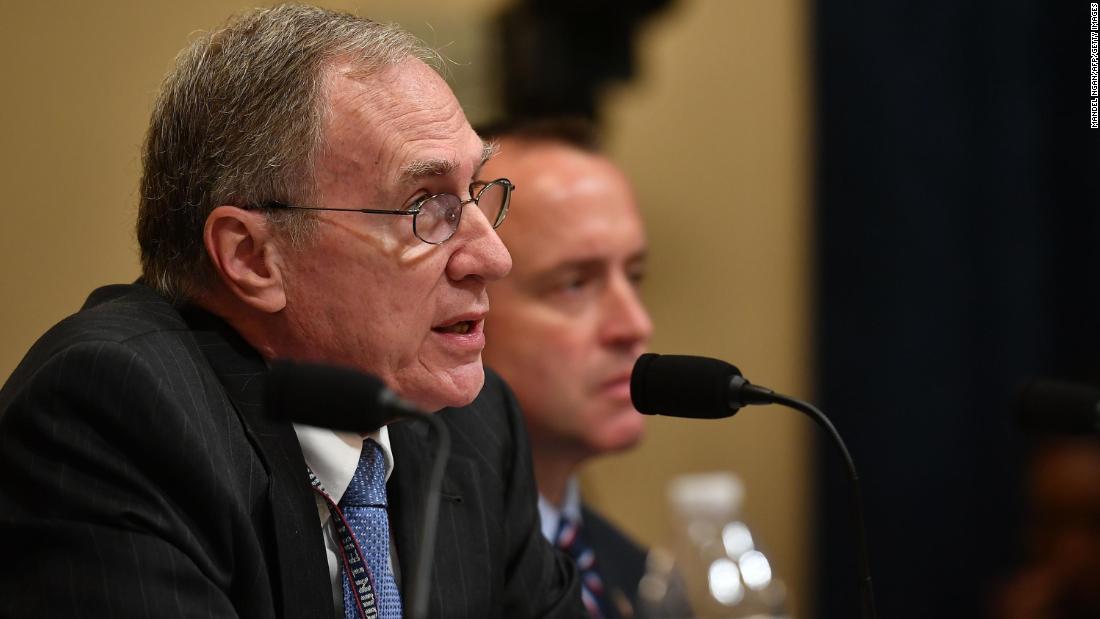
At a House Homeland Security Committee hearing Wednesday, acting Director of the National Counterterrorism Center Russell Travers called the death of Baghdadi a "significant" loss but added that the terror group has a "deep bench."
"We need to remember that the United States and the coalition overall has had tremendous success in eliminating leadership over the years of both al Qaeda and ISIS, and yet the bench tends to rise to the top. And my guess is that if history is any judge, over the next -- somewhere between a couple of days and a couple of weeks -- we'll see a new leader, khalif, announced," Travers said.
Baghdadi died in the early morning hours Sunday after blowing himself up when cornered by US forces who had raided his compound in northern Syria, according to President Donald Trump.
Abu Hasan al-Muhajir, a high ranking deputy in the terror group and its spokesman, was seen as a possible successor, Travers said, although he was also killed in recent days in a different part of northern Syria than where Baghdadi died.
Another potential new leader is Hajji Abdallah, an Iraqi religious scholar, Travers said.
Travers predicted the late ISIS leader would be eulogized, including by the head of al Qaeda, a rival group, and said the NCTC expects to see requests from the new ISIS leader for the group's branches and affiliates to swear allegiance.
"That's what we'll be watching very carefully -- to see how this individual consolidates control going forward," Travers said.
Within Syria and Iraq, there are at least 14,000 ISIS fighters, said Travers, up from around 1,000 fighters when the group was "at its low point" five or six years ago.
"This tells us that the insurgency has a lot of options," he said.
There were roughly 10,000 ISIS prisoners being held in Syrian prisons, of which around 2,000 were foreign fighters, according to Travers.
Travers told the congressional committee that "by any calculation there are far more radicalized individuals now than there were at the time of 9/11."
When asked how many al Qaeda members exist, Travers said there is a command and control structure, as well as around a half-dozen affiliates with thousands of individuals in each, but he acknowledged that numbers are difficult to come by.
He also said numbers alone aren't a particularly good indicator of capability.
Also Wednesday, FBI Director Christopher Wray warned that terrorists still pose a threat to the US even after the operation against Baghdadi.
"Even as we recognize our country's important recent achievements with the death of al-Baghdadi and our fight against ISIS in the Middle East, we know that we have to stay vigilant against the threat both overseas and here at home," Wray said.
In 2019, the FBI made 107 domestic terrorism arrests and around 121 international terrorism arrests, numbers that are in line with the previous year, said Wray.
There are around 1,000 ongoing FBI investigations related to homegrown violent extremism, as well as around 1,000 connected to foreign terrorist organizations, he added.
"International terrorism is something that is very much alive and well and something we need to stay focused on as well," said Wray.
Outgoing acting Homeland Security Secretary Kevin McAleenan said Wednesday that in the wake of al-Baghdadi's death, the inspiration behind the ISIS ideology persists.
The Department of Homeland Security and the FBI recently put out a joint intelligence bulletin to ensure awareness of the potential of someone to be inspired and commit an attack in the immediate aftermath of the death of a senior leader, according to McAleenan.
"We do think it's going to affect their ability to reorganize and redirect, but we maintain our concern about the diffused and dispersed ISIS affiliates and their ability to continue to mount threats to US interests worldwide," he said.
No comments:
Post a Comment